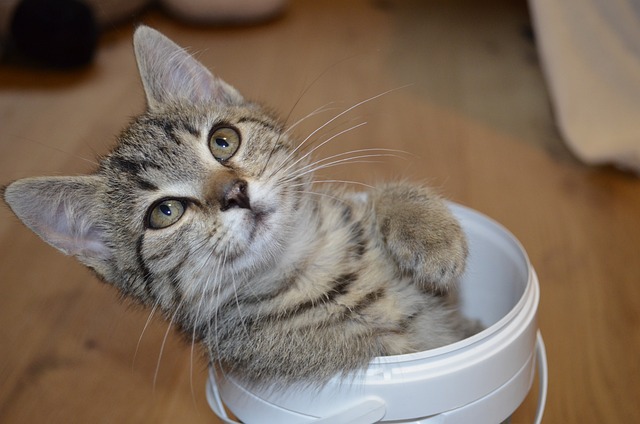Kittens typically start to eliminate on their own at around 3-4 weeks old, but younger kittens may need stimulation from their mother or caregiver. Constipation in kittens can be a serious issue, leading to discomfort and potential health problems. If a kitten goes more than 24 hours without defecating, it might be considered constipated, and if not addressed, it can progress to a life-threatening condition.
Symptoms of Kitten Constipation:
- No feces produced in 24-48 hours
- Straining to defecate without producing any stool
- Small, hard fecal balls
- Blood and/or mucus in the stool
- Crying in the litter box
- Decreased or loss of appetite
- Distended abdomen
- Vomiting
- Lethargy and weakness
Causes of Kitten Constipation:
- Inability to defecate in very young kittens (under a few weeks old)
- Dehydration
- Lack of fiber in the diet
- Ingestion of foreign objects causing an obstruction
- Intestinal worms
- Lack of activity and obesity
- Neurologic conditions affecting nerve control
Diagnosis: If a kitten hasn’t defecated for 24-48 hours, a veterinarian will conduct a physical examination, palpating the abdomen to feel for packed stool. X-rays and ultrasounds may be used to visualize the severity of the constipation.
Treatment: Treatment varies based on the severity of constipation. It may involve dietary changes, fiber supplements, and medications. Fluids may be administered to keep the kitten hydrated. Deworming medications might be given if intestinal worms are present. Severe cases may require enemas, and in extreme cases, manual removal of stool under sedation. Surgical intervention may be needed for conditions like megacolon.
Home Remedy: For very young kittens, stimulation around the anus with a soft cotton material may help induce a bowel movement. Keeping the kitten hydrated, feeding wet food, and adding water to the food can prevent constipation. Gentle activities like leg bicycling and belly massages may also stimulate bowel movements. Bathing in warm water can help relax muscles.
Recovery and Management: Recovery is usually quick after removal of hard stool or obstruction. Identifying and addressing the underlying cause is crucial. Long-term management may involve dietary changes, medications, routine deworming, and preventive measures. Always follow the veterinarian’s instructions and complete prescribed medications.
If constipation is suspected, it’s essential to seek prompt veterinary attention to prevent complications and ensure the well-being of the kitten.



